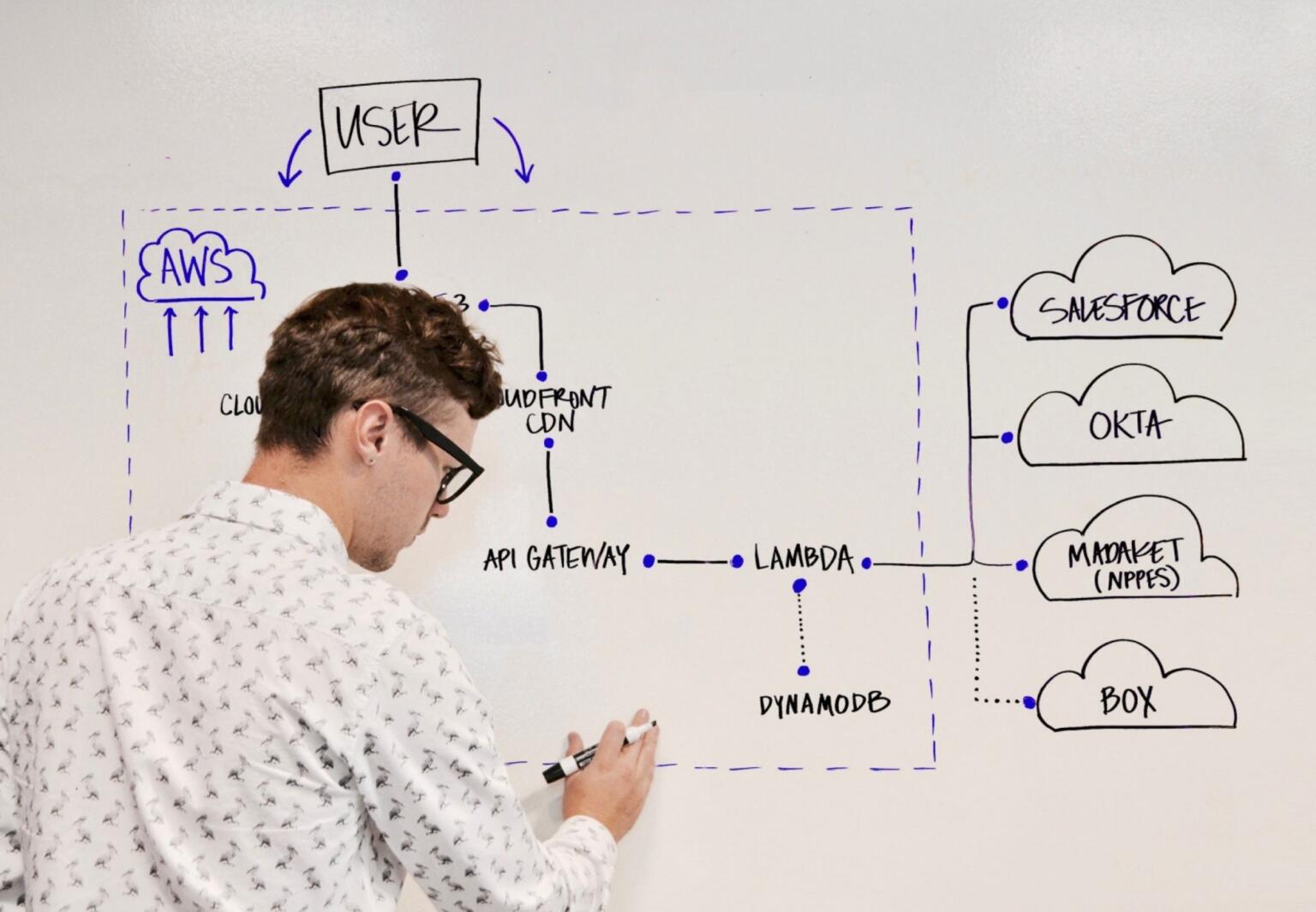Healthcare, moving forward

OVERVIEW
CHG Healthcare needed cost-effective, scalable software to connect and support clinicians deployed around the world, serving 25 million patients per year.
Scope
Cloud, Software Engineering, Serverless, Agile Coaching, DevOps Coaching, Quality Engineering
Technology
AWS API Gateway, AWS CloudWatch, AWS Dynamo DB, AWS Key Management Service (KMS), AWS Lambda, AWS Route53, Serverless architecture
Power to the practice
Locum tenens – the practice of traveling clinicians – is used to provide temporary healthcare coverage to underserved, often rural areas. To support a growing group of practicing clinicians, CHG required a Web portal for medical professionals to manage job opportunities. Evaluating their recent experience in deploying package software, CHG saw the opportunity to embrace the cloud and become a far more efficient team.

“We collaborated closely on the work so that [the CHG] team was learning the processes and receiving the knowledge to carry it on to the future.”
— Michael J. Smith, Solution Principal, Slalom Build
Reimagining both product and process
CHG’s product team was experiencing frustrating, costly delays in integrating already-developed software.
Seeing the simultaneous opportunity to launch product and reengineer for innovation, CHG and Slalom Build product teams worked side by side to move from on-premises to the cloud, from a server-based to serverless architecture, from waterfall to agile, and from a divided Dev and Ops organization to a collaborative DevOps culture.
“We took the opportunity to transform an organization from the bottom up, bringing agile principles into the team, and showing others how well it works.”
— Jeremiah Dangler, Senior Director, Slalom Build
FUN FACT
Slalom’s custom build for CHG allows them to deploy and test every feature branch as it’s created. This is not typically feasible in a non-serverless architecture due to the high cost of running dozens of environments. So cool!
Confidence and capability
We crafted a solution combining best practices for source code organization, CI/CD pipeline management, and development and testing. Uniquely, the approach allowed us to deploy and test every single feature branch as it was created, using a CI/CD infrastructure and retaining those environments for ad hoc manual testing. The result: high-quality software that can be quickly moved into production with confidence.
Starting with a lean team, and working fast, we planned, designed, developed, tested, and deployed new cloud microservices (applications that are broken down into small, independent pieces) using our DevOps, AWS, serverless, and test automation best practices.
Off and running.
After only 11 weeks, the CHG product team was off and running, repeating the agile software delivery process on their own. Instead of taking six weeks to release a feature, all they needed was three weeks to design, develop, test, and release it to production.
“This was an opportunity for us to show how you can transform your organization from the bottom up, by bringing agile practices and principles into the team and showing others how well it works,” says Jeremiah Dangler, senior director and engagement manager on this project.
Next Up